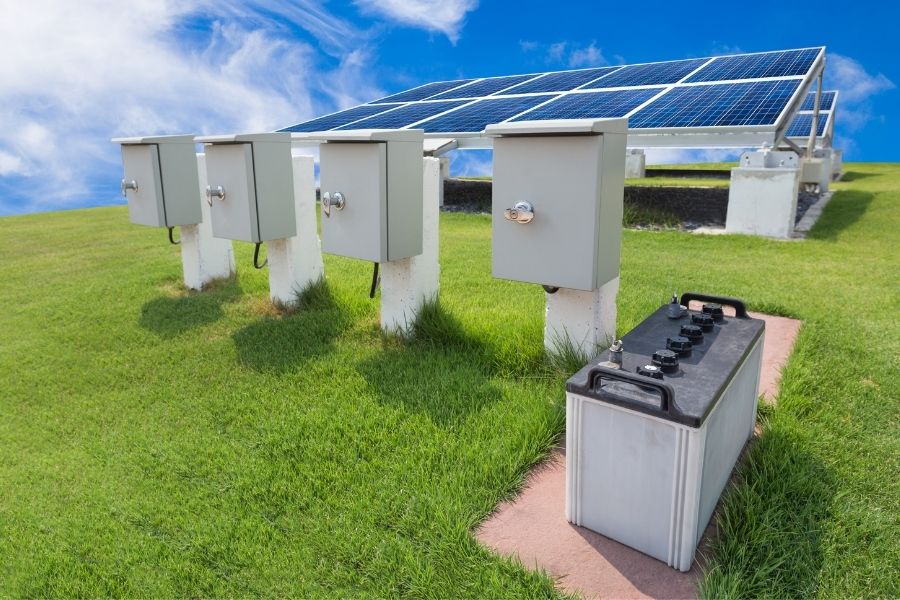Advantages and Disadvantages of Solar Power
At Solar Trust Centre, we’re always keen to chat about the great aspects of solar panels. There’s certainly no disputing there are indeed many. Yet...
%20(2).png)
It’s no secret solar businesses want to sell solar products. They also want to continue to grow their sales, so they’ll look to pursue a number of marketing techniques and strategies in order to do it. In and of itself there is nothing wrong with that - if we banned marketing from our world all the fun and style that comes with things like jeans, sunglasses, sports cars, and more would take a serious hit. But it’s important for both solar businesses and consumers to recognise the distinction between marketing elements that will really impact, and those that will not. Solar calculators are a good example of this. They’re very popular among businesses in the industry. This said, the reality is that many consumers can misunderstand how they actually operate. In turn, many businesses sadly fail to recognise the ability of a solar calculator to ultimately undermine their aim of getting more customers. So let’s look now at what is essential for solar consumers and sellers alike to understand when it comes to the drawbacks of solar calculators.
At the outset, it’s useful to define what processes fall under the definition of a solar calculator, and in turn what they usually look to provide a user. This is because not all solar calculators will look alike, and some may ultimately offer different features from one business to the next. Not only can this make it confusing for any customer who is browsing around, but it can also mean it’s a challenge for any would-be solar buyer to obtain insightful and actionable information, and thus get to a point where they feel ready to commit to acquiring a solar system.
A solar calculator will take data such as the size of a household’s roof, what suburb the home is in, the cost of a current electricity bill and/or the average daily use of electricity in a household.
Notwithstanding that the functions of solar calculators from one solar business to another can differ slightly, essentially all of them seek to take an input of information from an individual related to their household’s circumstances and then return estimates regarding how a solar system would perform on their roof. In keeping with their aim to essentially be marketing tools exclusively - and not an actual in-depth and precise assessment of how a rooftop solar system would perform for a particular household - these solar calculators are usually very easy to use. Yet ultimately, as aforementioned, in this case, the fact they are so simple is a sign they’re not terribly effective.
No, they’re not. It’s important though to know their limitations, and there are a number of them. Most calculators won’t take into account many key elements which go into making an accurate assessment of a household’s prospects when it comes to a rooftop solar system. For instance, considerations like any shading on the roof from nearby buildings and trees, the orientation of the panels, panel tilt, and panel spacing rarely feature in a solar calculator’s calculations. Nor is a solar calculator likely to consider other important elements like how many people are living in the home, whether those who live there currently study or work-from-home (an especially important factor since the outbreak of the pandemic) and a number of other factors.As a result, the bottom line is a solar calculator could offer some insight, but the information can be so spartan and general that it’s highly unlikely to deliver any insight that couldn’t be more effectively (and easily) obtained elsewhere. By the same token, unfortunately, such info could actually end up being confusing or outright counter-productive, as it could lead someone to feel their home is not a good candidate for a rooftop solar system, when in fact it is.
As indicated at the start, there is certainly nothing wrong with businesses engaging in great marketing. The fact is marketing is not only beneficial to the business and their target audience, but also to the world more widely. After all, just about everyone has stumbled upon a product by chance that they’ve subsequently purchased and come to love, and if not for marketing that seeks to promote products in a stylish and dynamic way, these chance encounters would occur far less often. But there can be a big difference between marketing that informs and entertains. Great marketing will do both of these well - ineffective marketing will do only one of these well, if at all. Solar calculators are a good example of this. They can certainly be entertaining, but they’re not really informative. They’re a fun tool for a potential customer to have a play around with, and they can sometimes give some basic insight into what aspects of solar installation it’s useful for a household to keep in mind. For example, how variables around roof size and location in Australia can impact the output of a solar system. But solar calculators will not offer the precision insight that a household actually needs to be able to make an informed decision about acquiring a solar system. For such circumstances, getting a customised insight from a solar installer is best, and it’s the only way to guarantee an assessment can be made of a household’s specific possibilities when it comes to getting a rooftop solar system installed. The starting point for this can be a call to a quality solar installer, a visit to their showroom, or arranging for an in-person visit of an installer to the home. These avenues allow for a sophisticated assessment of the proposed solar site to occur, and also an interactive process, where questions can be asked and a discussion had about the specific solar goals a household has. For solar sellers and consumers alike, prioritising these methods over solar calculators is unquestionably the better way to go.
%20(3).png)
At Solar Trust Centre, we’re always keen to chat about the great aspects of solar panels. There’s certainly no disputing there are indeed many. Yet...

Right now Australia’s seeing an installation boom in rooftop solar systems. Given the immense popularity of solar, it may seem like just about every...

Buying solar power products is always going to be an exciting event. This is the case whether it’s the first time, or one of many times. When all...